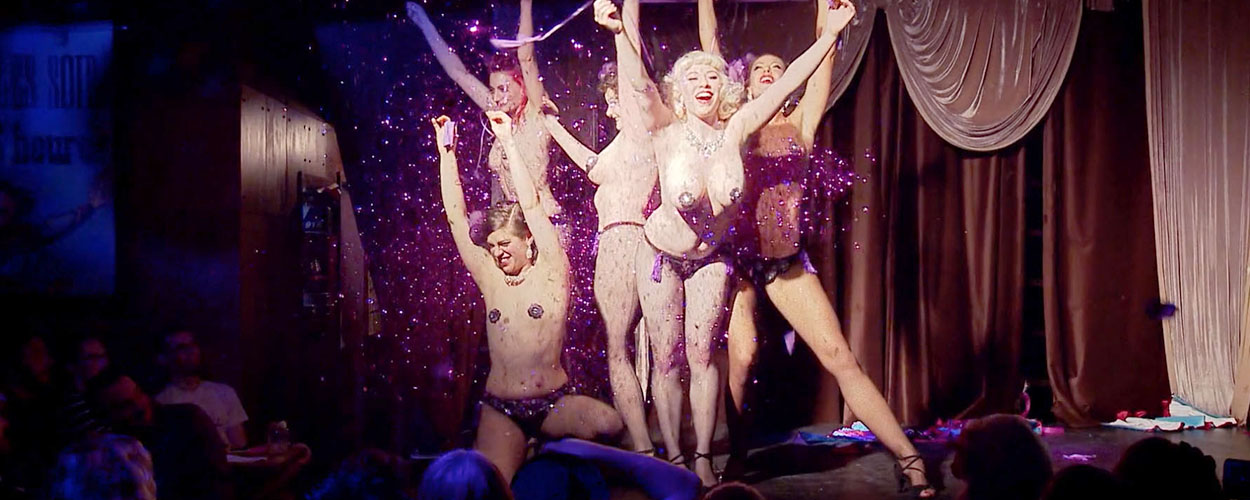This website uses cookies so that we can provide you with the best user experience possible. Cookie information is stored in your browser and performs functions such as recognising you when you return to our website and helping our team to understand which sections of the website you find most interesting and useful.
Artist News Business News Digital Labels & Publishers Media
US court throws out lawsuit over use of children’s song in burlesque documentary on fair use grounds
By Chris Cooke | Published on Friday 29 May 2020

A court in New York has thrown out a copyright infringement lawsuit filed against Netflix, Apple and Amazon over the use of an unlicensed children’s song in a documentary about a group of burlesque dancers. The case was dismissed on the basis that the inclusion of the song was ‘fair use’.
The song at the heart of the case is called ‘Fish Sticks N Tater Tots’ and was created by Tamita Brown, Glen Chapman and Jason Chapman back in 2011. The lawsuit explains that the song describes a child’s “journey from her classroom to her school cafeteria to eat fish sticks and tater tots for lunch”.
The lawsuit came about because the song is used in a routine performed by one of the dancers who features in the documentary ‘Burlesque: Heart Of The Glitter Tribe’, and therefore a short snippet of said song also appears in the film as well.
According to the lawsuit, that documentary “chronicles the stories of a group of burlesque dancers in Portland, Oregon through interviews, backstage preparations and on-stage performances”.
“In one scene”, it goes on, “a dancer, who goes by the stage name Babs Jamboree, performs an act in a food-themed show centred on the concept of a ‘reverse mermaid’, which, in her telling, is a creature with the head of a fish and the legs of a woman”.
“During the performance”, it then explains, “Jamboree steps behind a sign labelled ‘hot oil’ and emerges, having removed her fish head and changed into brown leggings to appear as though she has been transformed into fish sticks. During the performance, eight seconds of the song plays, consisting of the lyrics ‘fish sticks n tater tots’ sung by Brown a total of five times”.
The song’s creators sued Netflix, Apple and Amazon because they all made the documentary available via their respective platforms. The documentary’s makers hadn’t cleared the inclusion of the song in the film, the songwriters argued, and by distributing the programme all three tech companies had infringed their copyright.
For their part, Netflix, Apple and Amazon didn’t dispute that the songwriters owned the copyright in ‘Fish Sticks N Tater Tots’ or that it had been used without licence in ‘Burlesque: Heart Of The Glitter Tribe’. Instead they argued that the inclusion of a short snippet of the song as part of the performance by Babs Jamboree was fair use, meaning no licence was required.
Fair use, of course, is the rather large get-out provided by American copyright law. Whereas all copyright systems list some specific scenarios where people can make use of copyright works without permission, the fair use concept is much wider and much vaguer, resulting in complex debates whenever someone accused of copyright infringement says their use of whatever has been infringed was fair.
The ‘Fish Sticks N Tater Tots’ creators hit back at the fair use claim, arguing that the use of their song in the documentary wasn’t fair, and also that the judge shouldn’t make a judgement on such a claim this early in the case. However, judge Edgardo Ramos did not concur on either argument.
In his ruling, Ramos considered various reasons why the use of the children’s song in the documentary could be considered fair use, concluding that each of those reasons was pretty compelling.
That included the arguments that only a very short segment of ‘Fish Sticks N Tater Tots’ was used and that the way the song was employed was “transformative”, as in it communicates a “further purpose or different character, altering the first with new expression, meaning or message”.
The judge also said that the use of the song in the documentary wouldn’t have a negative economic impact on the original work, basically because no one is going to buy a film about burlesque dancers for their kids instead of the original child-friendly song.
In conclusion Ramos stated: “Plaintiffs allege that the use of the song in the film was unauthorised and bring suit against defendants for wilful copyright infringement. Before the court is defendants’ joint motion to dismiss the claims against Netflix and Apple, and for judgement on the pleadings for Amazon. Because the court finds the film’s incorporation of the song to be fair use, defendants’ motion is granted”.
The judgement is likely to ruffle some feathers in the music community, especially as it was made in the early stages of this dispute. Although at times fair use is actually a useful thing for music-makers as they go through the creative process, the music industry at large isn’t a fan of the concept, and doesn’t generally like rulings like this one that have the potential to set new precedents that extend the reach of the fair use defence.





